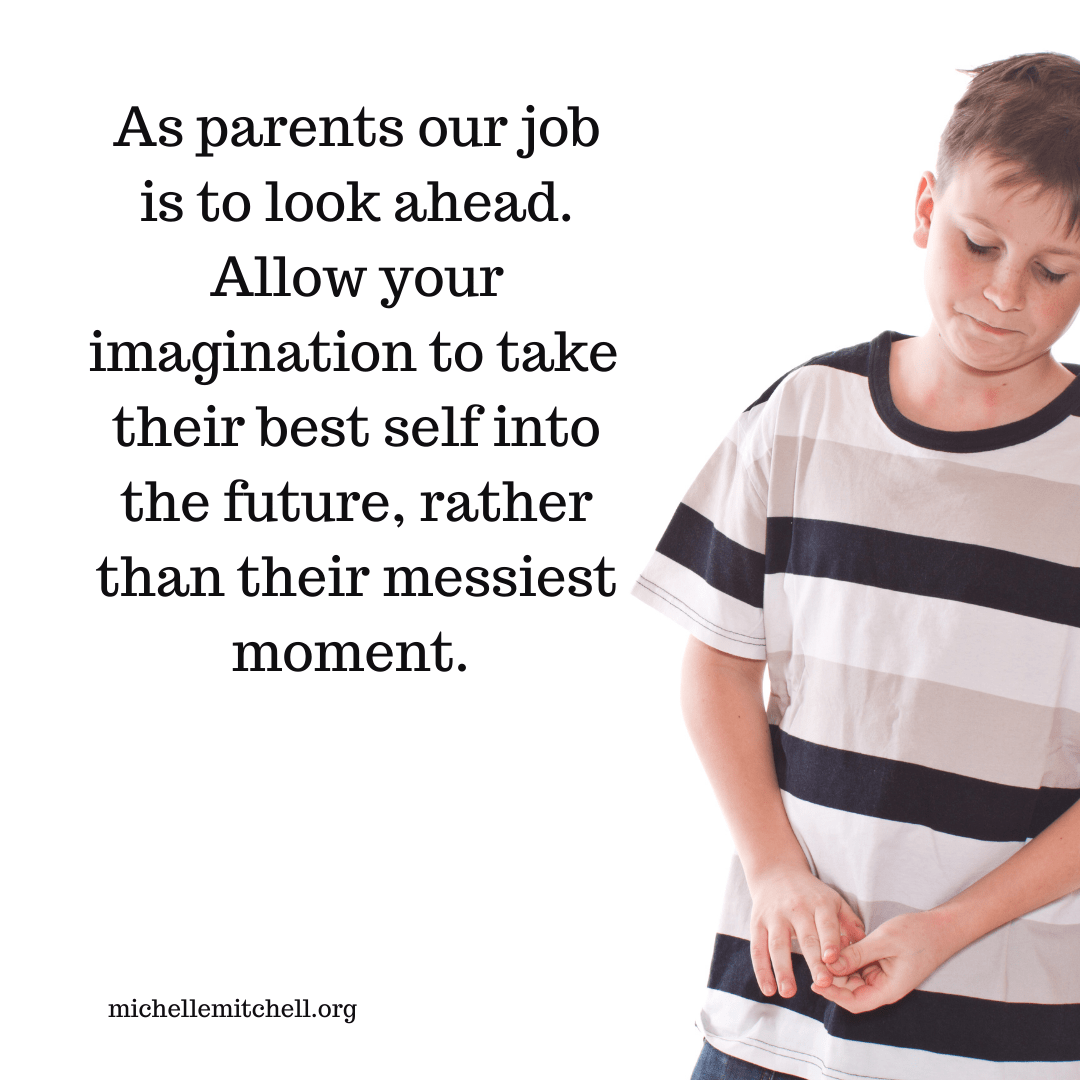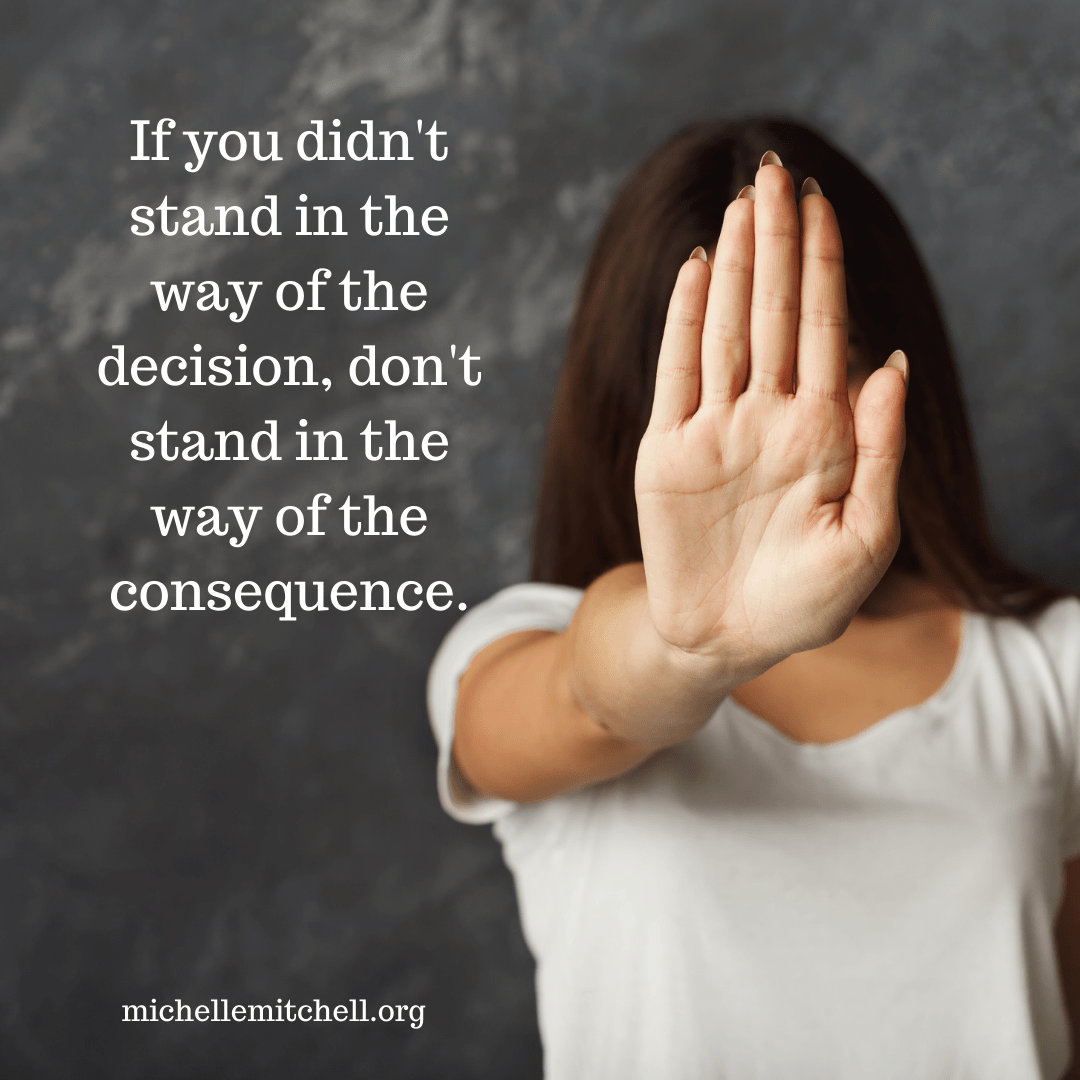michelle's blog
What to do with a Defiant Teenager: Seven reminders that will get you through
read

Young people typically cross my path when they are between 13 and 15 years old. They are quite often taking risks, pushing boundaries, and telling the adults in their lives that they know better. Their panic-stricken parents (some of the best parents I know panic a lot) usually explain the all-too-similar scenario, which goes something like this:
“I used to have a beautiful little child who was so perfectly mannered and sweet. They were such a delight. I miss those days!!!! Once they turned thirteen, they changed – almost overnight. They stopped talking to us. They won’t do anything I say. We are fighting all the time. I don’t feel like I can do anything right. I just don’t know what went wrong.”
If this is you, you are absolutely not alone.
I want you to firstly know that teenage defiance is a painful but important part of adolescent development. It’s our kids’ job to push back as they find their own independence. In fact, I’d go as far as saying that we want them to push back. (I know, can you believe I said that!) But (and here is the BIG but), we also want them to be safe, and we definitely don’t want to feel locked out of their world. Staying connected through the teenage years is something we must strive towards, even when it’s difficult. It’s when our teens feel like they don’t need us, that we are most valuable to them.
Neuroscientists tell us that there is an eighteen-month (or so) window that is the most intense time for teen brain development. This window of development characteristically involves defiance, and an exaggerated ego that drives teens towards risk taking. This is usually the time when parents contact me asking, “How to I handle a defiant teenager?” My response is seldom what parents want to hear.
This stage of development has to run its course. In the meantime, we hold the fort. That means we do everything we can to get them through safely, with their relationship with us intact. A big part of that is allowing them to feel our unconditional love and protection, because THIS gives them the strength to learn. That’s what we ultimately want them to do – learn and grow into their unique self.
If you are holding the fort right now, this blog is for you.
Below you will find several important reminders – from me to you. These concepts are designed to be “portable”, meaning you can easily tuck them away in your heart and bring them to the forefront of your mind when you need to. I’m actually imagining you now, standing in the kitchen after a fight with your teen. It’s been a long day! You are exhausted, you feel confused and unsure what else to do. This is when I want you to remind yourself of one, or more of these things.
Reminder statement, “It’s only season one.”
“If you knew me before my 20s you never actually knew me. You knew Season 1 of me. We were severely underfunded, and the writing team was going through a lot.” Author unknown
Season 1 looks like a messy, smelly 14-year-old boy who grunts and has one-word answers to almost everything you say. You feel like you barely know him anymore and you wonder what is going on in his world. Season 1 looks like a headstrong 15-year-old girl who blames you for everything in life that doesn’t go her way. You don’t know how to let her know you are on her team. Season 1 is a difficult time for everyone, but we must normalise the seasons of life. If we don’t, we may give up prematurely.
And while you are reminding yourself, take a trip down memory lane. It’s really easy to forget what Season 1 felt like for you. I’m sure that you did things that you knew your parents didn’t approve of. You might have gone with the crowd and made decisions you later regretted. Mistakes are unfortunately a part of Season 1.
Reminder statement, “I won’t use a full stop.”
When your tween or teen has a bad moment – one of those deliberate mess ups that causes your world to spin – NEVER put a full stop at the end of that incident. Stop, breathe for a moment, and choose a comma. A “mess up” could be any number of things – sexting, drug use or any poor or uncalculated decision.
Know that the moment you use a full stop your imagination fixes them in that place – forever. It pauses their growth. You basically take a 13 year old, and add a beard, partner and a few kids … and imagine them unable to cope with their responsibilities.
Be reassured of this – many things won’t transfer to their adult years. Their worst moments will look more like a comma rather than a full stop. As parents our job is to look ahead. If you are wise you will allow your imagination to take their best self into the future, rather than their messiest moment.

Reminder statement, “I need to take their whole heart through.”
When we see our teens struggling, we choose from two responses – control (which is based in fear) or trust. Control usually leads us to do whatever it takes to shame, blame, name calling, impose guilt and squash our kids into submission. The problem with using these tactics is that we don’t love their whole heart through to adulthood. We might get temporary “results” (or we might not), but we certainly damage a part of them in our efforts.
There is a better way. To take their whole heart through to adulthood we need to trust. Trust acknowledges that our tween or teen has a choice, a mind and a will. It acknowledges that their life comes with its own life lessons, and we can’t rush those lessons or schedule them. Turning points come at unexpected times and often from unexpected places. You are trusting that they can recover from mistakes and recorrect. That doesn’t mean we don’t protect our kids, but we allow room for them to make mistakes in the process of growing up.
Reminder statement, “I am the parent.”
The tween years can be blissful, or at the very least manageable. Parenting a teenage isn’t always quite as fun. It can be a sacrificial time for parents who have to invest, love and care more than they are thought imaginable. That responsibility can become a heavy weight. Know that when your child wants you out of their world, they need you in it the most. It’s helpful to remind ourselves that parenting grows us up too. Dealing with our own shortcomings makes it as easy as possible for our relationship with our teens to stay intact. After all, a parent’s love is a child’s greatest advantage in life.
Reminder statement, “I need to be clear.”
Underneath the cool facade is a good heart that needs some guidance. Teenagers need us (as their trusted adults) to point the way CLEARLY (ever so clearly!). They live in a world with so many mixed messages – there is so much grey! Teens don’t know as much as we think they know (about anything). They might look like they have it all together, but they need us to step them through life. They need us to teach them. Don’t ASSUME they know how – they often don’t. Break it down – one request, one action at a time.
One thing which is important that you are clear about is what decisions are there’s to make, and which are yours. Giving teens age-appropriate responsibility is critical. I personally get concerned when I see parents letting go at 13, when they have so many more years ahead to navigate. Things like catching public transport by themselves, dating, having their own social media account all should come slowly and with accountability. I talk more about this in my book “Parenting Teenage Girls in the Age of a New Normal.”
Reminder statement, “I can’t teach them everything.”
There are many things we can’t teach our kids. Real life has to step in. Sometimes we choose not to stand in the way of our tweens or teens choices, because we believe they can handle the life lesson on the other side. For example, you might say to your child – If you choose not to do your homework you will have to face a detention. I won’t write a note or bail you out. For example, you might say to your child – If you choose not to wash those clothes then you won’t have any clean ones for tomorrow. I’m not staying up late tonight and doing them for you.
There are other times when we choose to protect our kids from the full weight of consequences. These are usually times when we tried to stand in the way of the decision that lead to those consequences! We know that their shoulders aren’t strong enough to carry them. A good rule of thumb when making decisions – If you don’t choose to stand in the way of their decisions, don’t choose to stand in the way of the consequences. We can’t determine how life will interact with our kids. We can’t possibly manufacture the lessons life will teach them.

Reminder statement, “I will speak to their best self – always.”
Their best self is still in there – promise. Most kids want to do the right thing, they just get a little lost. They may say a lot of shocking, unnerving things, but inside is a person who wants to do better. If we speak from that assumption, we call on their best self and build on their potential. Teenagers can easily lose their way if we don’t keep truth up to them. One big truth is that they are awesome human beings who are still learning and growing.
So just to recap…
What do you do with a defiant teenager? I suggest that you tuck these reminder statements in your heart because you will need them:
- It’s only Season 1.
- I won’t use a full stop. Never ever.
- I need to take their whole heart through.
- I am the parent.
- I need to be clear.
- I can’t teach them everything.
- I will speak to their best self – always
RECOMMENDED RESOURCES: When They Push the Boundaries Webinar with Michelle Mitchell and Karen Young.
Click here for more information.
nEW here?
If you are new to my blog, I’m guessing that someone you trust mentioned my name, or you stumbled upon me online. This site is full of helpful parenting ideas that will help you make decisions with more confidence.
If you have something specific you are looking for, why not search the topics below. If you just want to browse, why not start by reading my most popular posts.
If you would like to receive Michelle’s blog via email each month, simply sign up below, indicating if you are a parent or a professional.

top reads
- 1. Try Being 5 Minutes Late: Common Sense Ideas to Promote Resilience
- 2. How to Deal with an Entitled Teen: Strategies You Can Use Today
- 3. Choosing a Counsellor: Ideas That Could Make All the Difference
- 4. Even If: Conversations to Combat Anxiety
- 5. What to Say if Your Child is Self-Harming: A Guide to the Initial Discussion